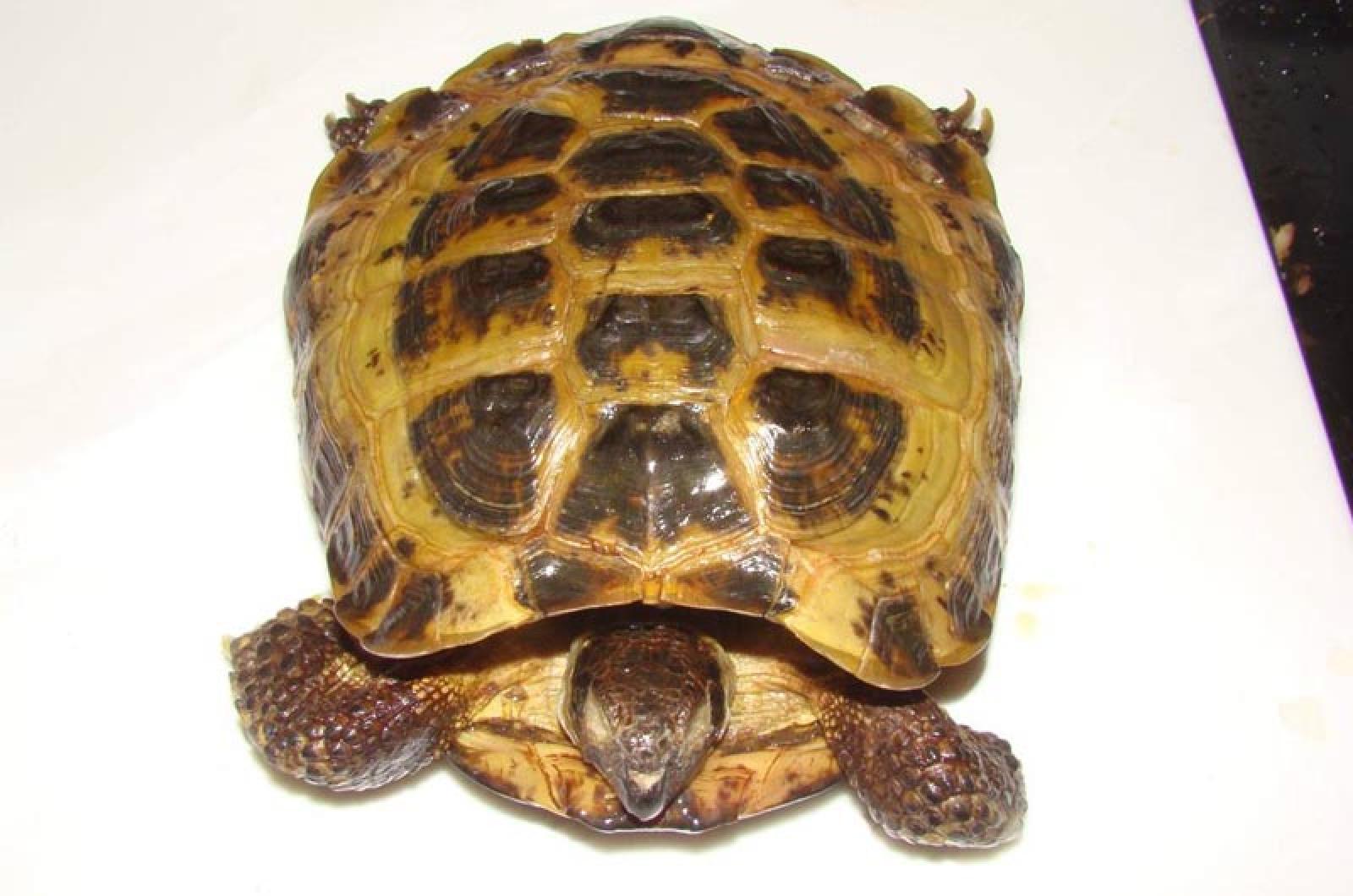To borrow Snoopy’s go-to opening line, “It was a dark and stormy night. . .”
Last week during the blizzard, David Stanwood got a very strange visitor. The guest came in the dark of night, brought in by the family dog, and was no longer among the living.
This visitor was of the animal variety, specifically a tortoise, but clearly not one native to the Island. In fact, its homeland couldn’t have been much farther away. The tortoise was identified as a Russian tortoise, hailing from yes, Russia, and also native to Afghanistan, Pakistan, Iraq, China and Uzbekistan. As they are difficult to breed in captivity, most of the Russian tortoises in the pet trade come all the way from Uzbekistan.
This was not a long-distance migrating tortoise — it was someone’s pet, though whether it had been released, escaped, or tortoise-napped by a curious canine is unknown. Perhaps it had perished, was buried and subsequently dug up by the dog, or maybe it escaped its pen and a frantic family was searching for its beloved pet.
I do hope it wasn’t simply released into the Island wilds. The releasing of pet animals is more common than one might think. At Felix Neck we get a lot of calls from folks wanting to give away their pet turtle, fish, or other animal. A common example is when a child gets a long-lived pet as a youngster and years later, the child has become a young adult and is ready go off to college and a frantic parent no longer wants to care for the pet. This particular Russian tortoise was from a species that can reach 50 years old, and can outlive its owner in terms of years or, unfortunately, interest.
We have also had cases where a family found and raised a wild animal, only to want to release it months or years later. This is generally bad for the animal that has acclimated to its life in captivity and no longer has the skills to survive in the wild.
In one interesting case, a turtle was brought to us after a family had moved from the Midwest to the Island. They were going to release what they thought was a painted turtle, believing that they were doing no harm as that species is native to the Island. However, this was a case of mistaken identity. The turtle that they brought across state lines was actually a river cooter, not native to the Vineyard, and luckily was not released on-Island.
It is actually illegal to release pets into the wild. This is to protect all animals. Pets can bring diseases to native animal populations, destroy habitats and native species.
Severe ecological disruptions can occur when a pet species successfully populates natural areas. Australia’s national science organization CSIRO reports that in 1859 “Australia was given its worst Christmas present when 24 British wild rabbits were released for hunting near Geelong. And guess what, they bred like rabbits. Over the next 40 years rabbits spread to Queensland, Western Australia and the Northern Territory. By 1950 rabbit numbers in Australia reached 600 million.”
In Florida, iguanas and ball pythons have become immense problems, and Hawaii struggles with released chameleons. Parakeets, African land snails, fish, and red-eared slider turtles are other pets that have become problematic in the wild.
But back to the tortoise in question. David, who lives in the Lambert’s Cove area of West Tisbury, knows of no neighbors who kept a pet Russian tortoise. Perhaps we can solve the mystery of where it came from and how it appeared on David’s doorstep. If anyone in the area is missing their pet, please contact him or me.
If no one comes forward, the final fate of this tortoise will take a turn for the better. Word has gotten out and the body will be donated to science. It is again going on a lengthy journey, as the specimen will likely be sent to a turtle and tortoise research institute in West Africa where it will be used for education, research and conservation. Perhaps the best description of its well-travelled life can be summed up in the words of Jerry Garcia: “What a long, strange trip it’s been.”
Suzan Bellincampi is director of the Felix Neck Wildlife Sanctuary in Edgartown.




Comments
Comment policy »